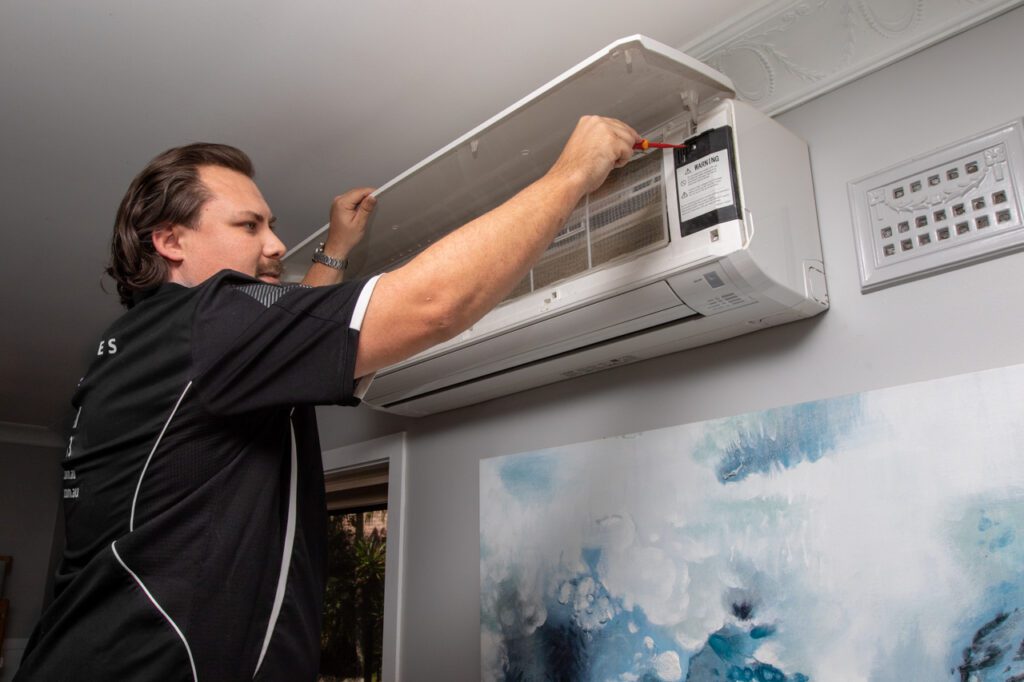The size of an air conditioner does not necessarily refer to its physical dimensions. It refers to the number of units required for air conditioning installation.
The unit’s size determines how powerful the air can consume and the space it can serve. The right size unit will make your AC work efficiently, regardless of whether you’re looking for a central AC or window conditioner.
It can be difficult to choose the right size AC. It is important to understand your requirements and determine the right size unit for you. You might not get enough cooling if you go safe and buy a smaller unit. You might also have to pay more for electricity if you buy a large AC.
It is better to talk to an aircon installer than play guessing games. They can give you an estimate on what you require.
How Big Is Your Air Conditioner?
There is no one right answer. It all depends upon your needs, as well as the other factors we will be discussing below.
- The dimensions of your room.
- The location of your home.
- Climatic condition.
- There are many openings in your home.
- How much insulation do you have?
- The house is home to a large number of people.
- The number of heat-generating appliances in the room.
These factors are crucial in determining the size of your air conditioner. These factors are important in order to provide the best air conditioning services. These factors are run through a complicated calculator by professionals who then calculate the air conditioner’s tonnage.
The Rules of Keeping Cool
You need to be able to distinguish between different ACs when you go out looking for one. A window conditioner, for example, can cool your home with a cooling power of 5000 BTU up to 12,000 BTU. The general rule is that you need at least 20 BTU per square feet.
When calculating the BTU, however, you should also consider the height of the ceiling and the number of windows or doors. Find out how many square feet the room is by measuring its volume. Consider whether there are any other rooms that can be joined to the room by a door.
Don’t Over Kill
Many people believe that larger units are more efficient. They do provide adequate cooling, but they consume more power. You might end up paying high electricity bills each month.
You can’t dispute that larger air conditioners are better than smaller ones. Air conditioners remove moisture from the air. The reason your hands become sticky from too much time spent on an air conditioner is because they extract moisture. It is important to choose the right size air conditioner.
Insulation Variables
The size of your air conditioner’s unit will also depend on how well it is insulated. You can improve the performance of your air conditioner by making sure that your space is well insulated. The air conditioner’s size will increase if you have windows and doors that are open.
A two-story home will be more efficient because the downstairs has more insulation. You might also want to consider a bigger AC to cool your home.
Location
It matters a lot where the house is located. Each region has its own weather conditions. You need to choose the right size depending on where you live and how hot or cold it is in summer. If you live in Perth, for example, it can be very humanoid in the summer. You need a system that is compatible with the climate.
Final Tip
There are many types of air conditioners that can be used to meet different needs. You can choose from any type of air conditioner. Here is a tip. Wall-mounted ACs are better than window air conditioners. They are more efficient and provide better cooling.
Wall-mounted air conditioners are usually mounted at 5 to 6 feet above ground. Cool air can flow through walls more easily, which allows it to spread more widely throughout the room, helping to raise the temperature.



